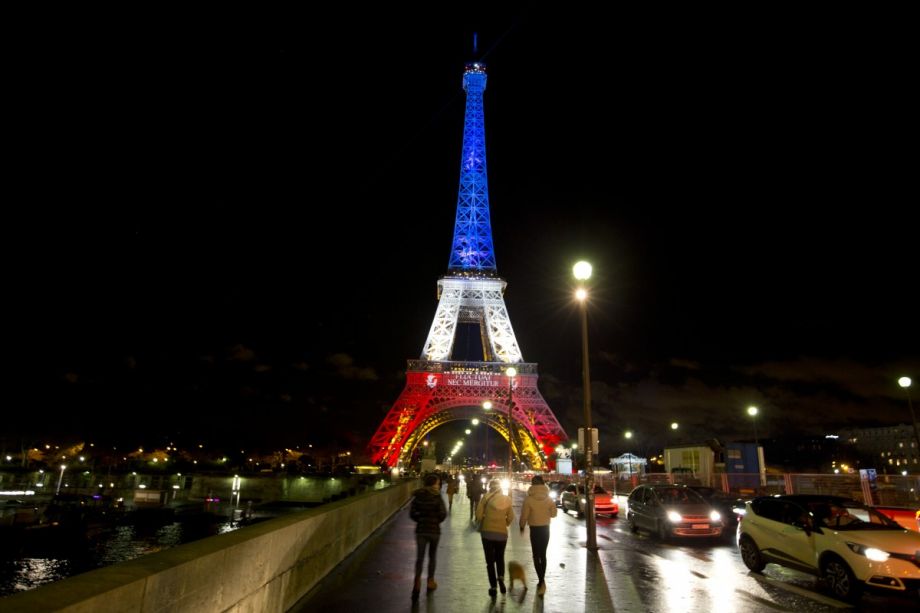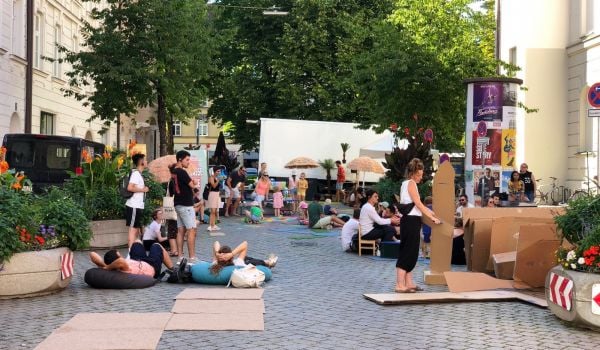Over the next year, urban planners from around the world will help to create a “New Urban Agenda.” This agenda is being designed for approval at Habitat III, the United Nations Conference on Housing and Sustainable Urban Development, in October 2016 in Quito, Ecuador. As one of 200 experts and the sole American on the National Urban Policies unit, I was in Paris last week to meet with my group. I flew to France filled with unbridled optimism about the future of sustainable urbanization.
Then, just hours after our meeting on November 13th, Paris was attacked. Subsequent actions by world leaders have me thinking about the implications of war on urbanization. Remembering the tragic events of 9/11 and the U.S. government’s reactions, I am deeply concerned that resources desperately needed for urbanization will be re-allocated to defense. What could the trillions of dollars the U.S. has spent on wars in Afghanistan and Iraq have done to improve cities, especially those that experienced decline over the last few decades?
While we certainly need to ensure the safety of citizens, urbanization is unlikely to be slowed by such attacks. We must dedicate resources to other fundamental quality-of-life issues that will be pressing as city populations rise. Projections for growth are staggering. In 1950, 746 million, or 30 percent of the world’s population, lived in cities. Today, 54 percent are urban-dwellers, and by 2050, over 66 percent (or 3.9 billion people) will call a city home.
Fortunately, Habitat III offers a far-reaching opportunity to discuss how best to plan and manage cities, towns and villages. HIII can also help shape future global development and climate change goals — by securing renewed political commitment for sustainable urban development, assessing accomplishments to date, addressing poverty, and identifying and addressing new and emerging challenges.
To prepare for HIII, 10 policy units are meeting over the next six months to produce papers on relevant topics — from urban governance to technology to housing — designed to shape the New Urban Agenda. (Find more on the policy units here.) As a member of the National Urban Policies unit, I’m working to identify challenges, policy priorities and critical issues as well as offer action-oriented recommendations for the implementation of the New Urban Agenda. Our policy paper and framework (which should be done by the spring) will offer technical guidance member states’ can consider in advance of HIII.
The main objectives of these policy units are to bring together high-level expertise to explore state-of-the-art research and analysis; identify good practices and lessons learned; and develop policy recommendations on particular issues regarding sustainable urban development.
Next, I’ll meet with my policy unit in Incheon, Korea, but as we continue our work, I will be thinking about how we envision cities of the future when the threat of terrorism and war consume our attention. As I walked around Paris on Saturday, I found inspiration. Amid a state of emergency, Parisians pressed on with life, and I witnessed a determined sense that the city was their home, now and in the future.
Will governments prioritize sustainable development in the cities that so many do — and will — call home? Will the U.S. and other countries around the world instinctively react and shift urban investment dollars to military spending? How do we ensure that everyone is safe while elevating the quality of life, especially in places that will be more densely populated and susceptible to climate change?
I don’t have all the answers, and I might not even be raising all of the necessary questions. However, Next City is committed to engaging our readers in a seminal moment in world history. We will continue to cover events, places and people that shape our cities, with a focus on the road to Habitat III, and we look to you to become more engaged in the conversation. Last week’s tragedy reminds us of how precious our lives and cities are. We can and must plan for urbanization, and ensure that future generations live in a more peaceful, just, healthy, safe and beautiful world.
This piece is part of a series of reported articles and op-eds that Next City is publishing related to preparations for the United Nations’ Habitat III conference in Quito, Ecuador, in October 2016. With a grant from the John D. and Catherine T. MacArthur Foundation, we’re covering the critical issues at stake on the road to creating a “New Urban Agenda,” and hosting events at PrepCom III in Surabaya, Indonesia, in July 2016, and in Quito.

Tom was president, CEO and publisher of Next City from May 2015 until April 2018. Before joining Next City, he directed the Center for Resilient Design at the College of Architecture and Design at the New Jersey Institute of Technology. Prior to that, he ran the Regional Plan Association’s New Jersey office, and served as a senior adviser on land use for two New Jersey governors. Tom is a licensed professional planner, and a member of the American Institute of Certified Planners, as well as an adjunct professor at the New Jersey Institute of Technology, where he teaches land use planning and infrastructure planning.












